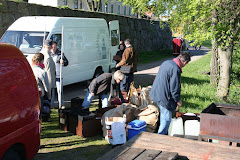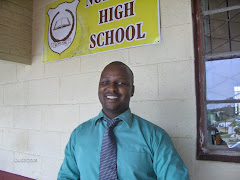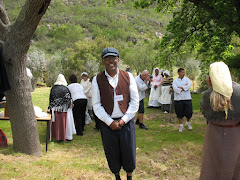CONCLUSION
- There is a rich history in the Port Shepstone region. It is a diverse history, a history of immigrants, an intercultural history but also a cosmopolitan history. And there are also some stone age and iron age remains.
- History is not well recorded in the region. There are records of the archaeologial remains at Natal museum. The historical sources and litterature are written from the colonial perspective.
- There are now much going on in the research on the history of the Port Shepstone region: The Ugu District Heritage Project; A local committee for the South African celebration 2010 of the first indians arriving in 1860; Marburg Community Devlopment Trust; Time Travel Project; Research by individuals etc.
- Oral history will be the focus in the research for the time travel project. Three main topics:
Social history – family, children, women, men, houses, food, celebrations, games etc.
Economic history – employment, domestic work
“Mental history” – tales, legends, stories, myths, songs, dances
Also meeting places and the river, environmental issus.
The time period is early 1900s, c. 1900-1930. The first interviews will decide if the time period and topics need to be changed, widened or narrowed.
- Mark Sole at the Museum Service has promised to help with research in archives and documents when there are special needs and also to follow the progress in the time travel work.
- The time travel site will be a meeting place, where people of different traditions, women, children and men met. First alternative is the harbour on either side of the present bridge. Discussion with the HCM about a time travel site for learners but also for the public and maybe even tourists in the future.
- Three schools will take part in the time travels 2009: Nobamba Secondary School, Marburg Secondary School and Merlewood Secondary School. The schools choose the grade in line with the curriculum (grade 9,10).
- The schools will document their work, choose what subjects will be included, how the time travel method fits into the curriculum of different subjects, the progress of the work, take photos and at the end do an evaluation with learners and teachers.
The work that Nobamba and Marburg schools do in the Time Travel project is also their work in the Global School Supplement project. In this cooperation there are also schools in Uganda and Nicaragua. - The Time Travel Committee organises the project, have meetings and gather information and documentation from the different stakeholders. “Study circles” will be held with adults.
- Three-four people will be trained in Sweden, c. May 7-20. The suggestion is one person from each of the participating schools and the chairperson in the time travel committee.
TIME PLAN
1. The Time Travel Committee organises the work, responsibilities and make a time plan.
2. Every person in the time travel groups, including the teachers, make an interview with a person; topics and time period see above. The questionnaires will be discussed in the time travel groups beforehand. These interviews make everyone aware of problems, difficulties and opportunities in making interviews and maybe some changes needs to be done in the structure of the interviews before the learners start. The interviews will be finished before Easter.
3. Some time after Easter the education in school starts. Studies of life in the early 1900s in the Port Shepstone region and South Africa. The learners will make interviews of older people, their grandparents or other older people they know. They follow the topics and time period decided and the experiences from the adults’ interviews.
4. The interviews and stories are the background for the scenario in the time travel. The time travel committe and Kalmar läns museum write the scenario together. Key questions need to be decided. Later also the activities in the time travel. The information gathered can also be used for a display at the Port Shepstone museum or in other ways.
5. The learners and the adults take a character and write half a page about their own character.
6. Costumes and props need to be organised.
7. Last preparations in September and early October for the time travels, maybe drama lessons etc.
8. Time Travels in early October (schools begin October 5th), maybe c. October 10-15. Three time travel days, one school with 25-30 learners each day plus some adults. The adults need to be prepared, too. The Global School Supplement and the Global School Journey will also take part in the time travels.
9. In October there will be a half-day workshop on time travels at Fort Durnford in Estcourt organised by the KZN Museum Service. Also meetings with Departments of Education and Culture in Pietermaritzburg.
10. The time travel project will continue in 2010. At one stage there will be a workshop in Wolwekloof, Western Cape, together with other time travel groups in South Africa.
Thanks to everyone who take part in this project, all the committment and all the joy. This is hopefully a start of something important for the community and the people in the region.
2009-02-19
Ebbe Westergren, Helen Eklund, Meg Johnson and Laila Forsmark
COMMENTS BY CONVENOR: FUNDING IS CONFIRMED FOR 3 PERSONS. PSTA WILL BE NOTIFIED IF THERE WOULD BE FUNDING FOR THE 4TH PERSON.




























































No comments:
Post a Comment